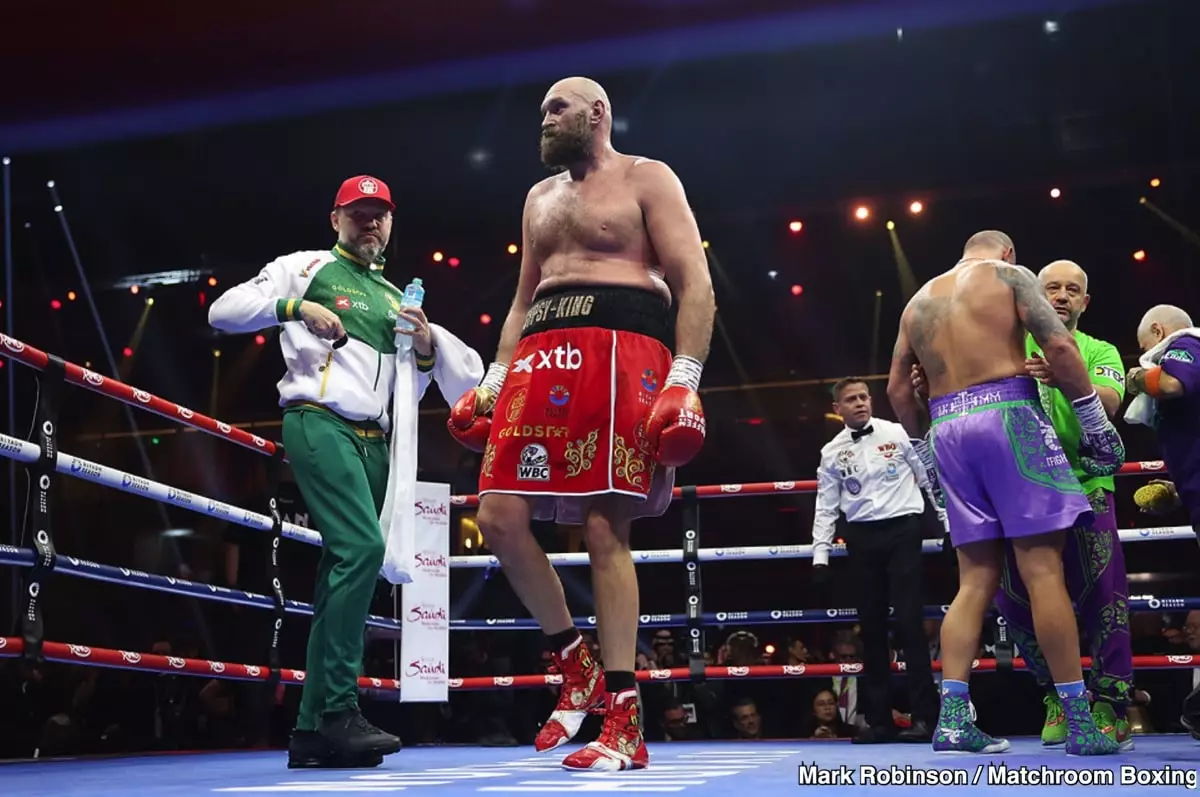Tyson Fury, a name that elicits both fascination and frustration among boxing fans, has once again set the boxing world abuzz with his recent retirement announcement. At 34, with a professional record of 34 wins, 2 losses, and 1 draw, Fury’s decision has triggered a familiar skepticism rooted in a history of vacillating intentions. In this article, we analyze Fury’s latest claim of hanging up his gloves, consider its implications for his legacy, and reflect on the broader impact of his career on the sport.
Fury’s retirement announcement was strikingly brief and laced with his trademark theatricality: “Hi, everybody, I’m going to make this short and sweet. I’d like to announce my retirement from boxing.” Such proclamations have become a staple of his public persona, leading many to question the sincerity of his words. After multiple retirements—real or otherwise—Fury’s credibility often feels as fragile as a glass in a heavyweight bout. This gradual decline in faith among fans and analysts is detrimental to the sport’s integrity, inviting a larger discourse on athletes’ responsibility to their audience.
What is most ironic is Fury’s flair for drama, particularly in how he frames his departures. After his recent bout against Oleksandr Usyk, he suggested a personal grievance regarding the scoring—a claim that, upon analysis, appears more a reflection of his inability to accept defeat gracefully than an actual case of foul play. This habit of deflection casts a long shadow over his personality as an athlete, creating a narrative where the man appears more interested in spectacle than sportsmanship.
When considering Tyson Fury’s place in the pantheon of heavyweight greats, the conversation becomes divisive. He has had phenomenal victories, particularly against giants like Deontay Wilder, which undeniably earn him recognition as a formidable figure in boxing history. However, lingering questions arise about the quality and consistency of his opposition. After back-to-back defeats against smaller fighters like Usyk, some critics argue that his claim for a legacy akin to legends like Muhammad Ali or Joe Louis suffers significant doubts.
Moreover, his participation in several lackluster fights—like those against Tom Schwarz and Derek Chisora—further complicate the narrative surrounding his legacy. Are these bouts evidence of his ability to entertain or merely reflections of a fighter coasting on charisma without facing the pressure of challenging opponents?
Fury’s candid discussions about mental health have become part of what makes him a relatable figure for many. His openness about struggles against depression and anxiety resonates with fans, potentially earning him a place in the hearts of those who admire vulnerability in athletes. However, this front also raises questions—does Fury use his personal struggles as a shield to deflect criticism? Critics argue that his narrative may detract from moments of genuine accountability, thereby reducing the seriousness of his statements.
Additionally, Fury’s penchant for subterfuge in interviews further muddies the waters. While entertaining, his tendency to distort facts raises concerns. Does he become a caricature of the ‘bad boy’ of boxing, garnering more disdain than respect from purists who want to see authenticity in athletes? This duality makes it difficult to assess whether his contributions to the sport will be fondly remembered or simply viewed as a flash-in-the-pan spectacle.
If Fury genuinely walks away this time, the boxing community will undoubtedly feel the ripple effects. Fans have been polarized, with some eager for his return and others wishing him well on his departure. While his larger-than-life persona cannot be easily replaced, the question remains: will his absence leave a void or simply mark the end of an era characterized by unpredictability?
As Tyson Fury toys with retirement, he remains the embodiment of boxing’s complicated relationship with celebrity culture. Whether this chapter closes for good, or we see Fury back in the ring yet again, one truth remains—his rollercoaster career has transformed him into a complex figure, blurring the lines between sport and entertainment. Fans and analysts will continue to wrestle with what his legacy truly means, constructing a narrative that reflects the chaos he has both created and thrived in.

